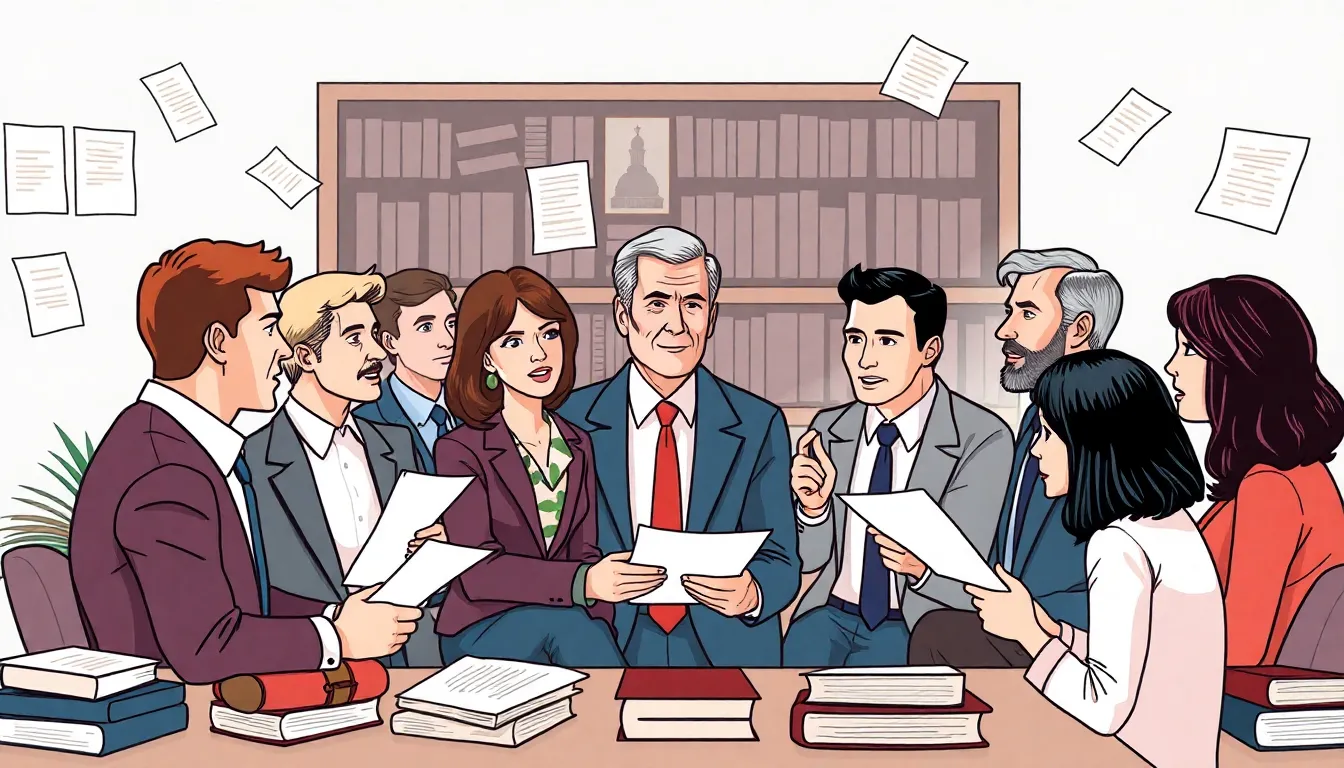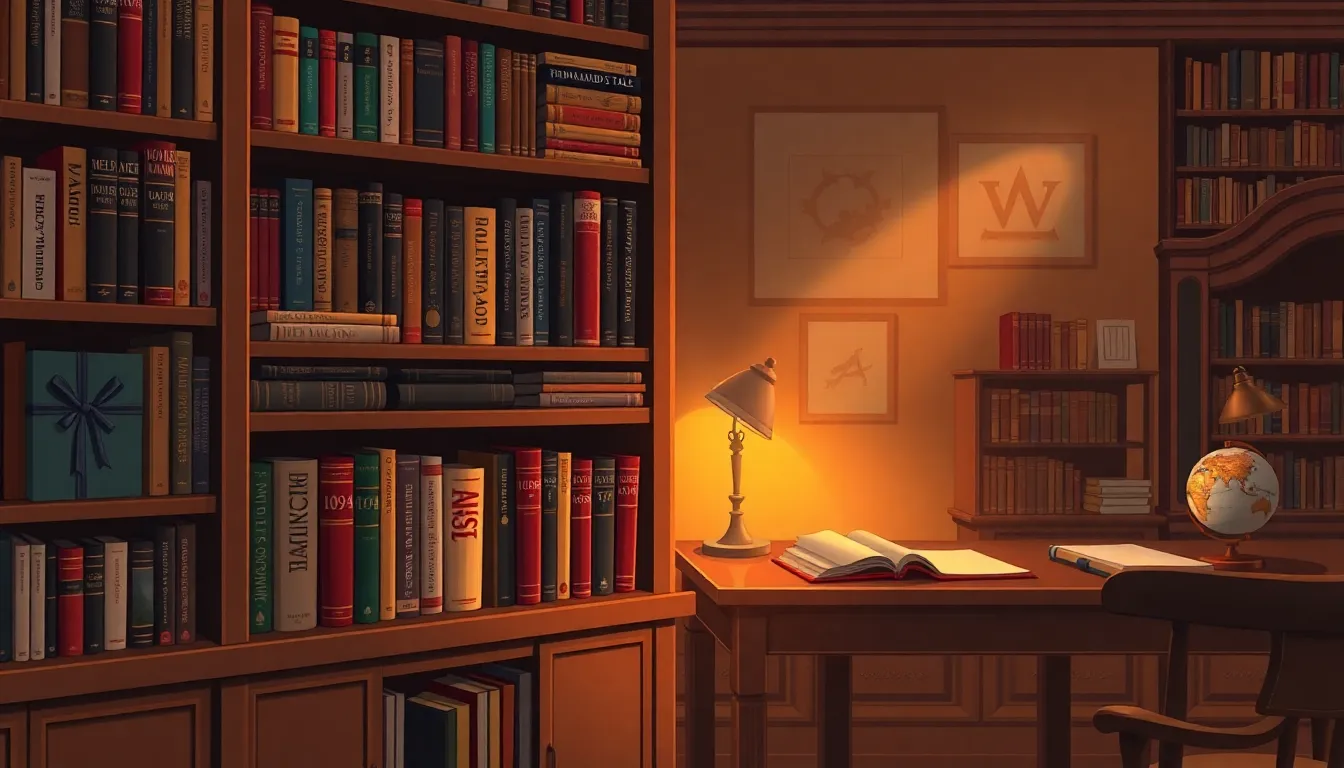Table of Contents
TogglePolitical fiction isn’t just a genre; it’s a thrilling rollercoaster ride through the wild world of power, corruption, and the occasional plot twist that leaves readers gasping. Imagine diving into a story where the fate of nations hangs by a thread, and the characters are as colorful as a politician’s campaign promises. These tales blend reality with imagination, offering a mirror to society while keeping readers on the edge of their seats.
Understanding Political Fiction
Political fiction serves as a compelling exploration of power dynamics, corruption, and societal issues. This genre captivates readers by intertwining complex characters with high-stakes scenarios that resonate with real-world events.
Definition and Characteristics
Political fiction involves narratives that address political themes, societal structures, and governance. It often includes characters such as politicians, activists, and ordinary citizens. Elements like conflict, morality, and ethics frequently appear, showcasing the struggles and triumphs of individuals within the political landscape. Readers typically encounter unexpected plot twists that reflect real political dilemmas, providing a critical lens on contemporary issues.
Historical Context
Political fiction has roots that trace back to ancient literature and has evolved significantly through time. Classic works, such as those by Machiavelli, laid foundational ideas on power and governance. The genre gained momentum during times of upheaval, such as war or revolution, often serving as a vehicle for social commentary. Modern authors, like George Orwell and Margaret Atwood, have expanded the genre, highlighting themes of totalitarianism and dystopia. These historical shifts illustrate how political fiction mirrors and critiques societal changes throughout the ages.
Famous Works of Political Fiction


Political fiction encompasses numerous influential works that provoke thought and inspire change. These narratives challenge societal norms and elevate discussions about power.
Classic Novels
Classic novels lay the foundation for the political fiction genre, exploring themes like power and morality. “The Prince” by Niccolò Machiavelli examines political strategy and ethics, becoming a pivotal reference for leaders. George Orwell’s “1984” offers a chilling depiction of totalitarianism and surveillance. This dystopian tale cautions against oppressive governments and the manipulation of truth. Aldous Huxley’s “Brave New World” critiques consumerism and the loss of individuality in a controlled society. These classics have left an indelible mark on literature, influencing countless writers and thinkers.
Contemporary Authors
Contemporary authors continue to shape political fiction through their diverse perspectives. Margaret Atwood’s “The Handmaid’s Tale” presents a chilling vision of a theocratic society where women lose their rights. This work raises alarms about the erosion of personal freedoms. Hilary Mantel’s “Wolf Hall” focuses on Thomas Cromwell’s rise to power during the Tudor dynasty, highlighting the intricacies of political maneuvering. Salman Rushdie’s “The Satanic Verses” examines religious dogma and cultural conflict in modern society. These authors engage readers with gripping tales that reflect current global issues and encourage critical thinking.
Themes in Political Fiction
Political fiction often explores a variety of themes that resonate with readers, delving into the intricacies of power, ethics, and societal dilemmas.
Power and Corruption
Power dynamics play a pivotal role in political fiction. Corruption manifests through characters who wield authority, providing a critical lens on governance and its moral implications. Stories frequently depict leaders who manipulate systems for personal gain, illustrating the dangers of unchecked ambition. Machiavelli’s “The Prince” serves as a fundamental reference, outlining strategies that highlight the precarious balance of power. Dynamic characters navigate treachery and intrigue, revealing how institutions can become tools of oppression. Readers gain insight into the consequences of corruption, prompting deeper questions about accountability in leadership. These narratives, rich with ethical dilemmas, challenge individuals to reflect on their values within the political arena.
Social Justice and Activism
Social justice emerges as a key theme in political fiction, emphasizing the struggle for equality and human rights. Activist characters often rise against oppressive regimes, embodying the fight for change in society. Works like Atwood’s “The Handmaid’s Tale” address the consequences of diminished rights, showcasing the resilience of those who resist. Contemporary literature frequently highlights movements advocating for marginalized voices, encouraging readers to engage with current events. Narratives about activism inspire reflection on civic responsibility, pushing individuals to consider their role in fostering justice. Through these powerful stories, political fiction captures the urgency of addressing social inequalities, underscoring the transformative potential of collective action.
The Role of Political Fiction in Society
Political fiction plays an essential role in shaping societal perceptions and values. It frequently reflects the political climate, capturing the complexities of governance and public sentiment.
Reflection of Political Climate
Political fiction mirrors the evolving political landscape. It often presents characters navigating crises, revealing underlying tensions within society. These narratives illuminate the struggles individuals face under different regimes, showcasing corruption, power abuse, and citizen resistance. Through vivid storytelling, readers gain insight into real societal issues, prompting discussions around justice, rights, and leadership ethics. Such representations encourage readers to critically analyze current political events, making literature a powerful vehicle for societal reflection.
Influence on Public Opinion
Public opinion often shifts in response to political fiction. Engaging stories stimulate emotions and provoke thought, influencing how people perceive political issues. Characters who fight against oppression resonate with readers, inspiring them to challenge norms and advocate for change. Fictional narratives that address pressing concerns, such as racial inequality or government surveillance, can shape attitudes and motivate activism. Authors, through their work, bring attention to critical issues, making political fiction a significant tool for cultivating awareness and sparking social movements.
Political fiction remains a vital genre that not only entertains but also provokes critical thought about governance and societal issues. Through its rich narratives and complex characters, it challenges readers to confront the realities of power dynamics and moral dilemmas.
As the genre evolves, it continues to reflect contemporary struggles and aspirations, encouraging engagement with pressing social movements. By exploring themes of corruption, justice, and resistance, political fiction inspires individuals to question norms and advocate for change.
This powerful intersection of storytelling and politics ensures that political fiction will always resonate with audiences seeking to understand and influence the world around them.








